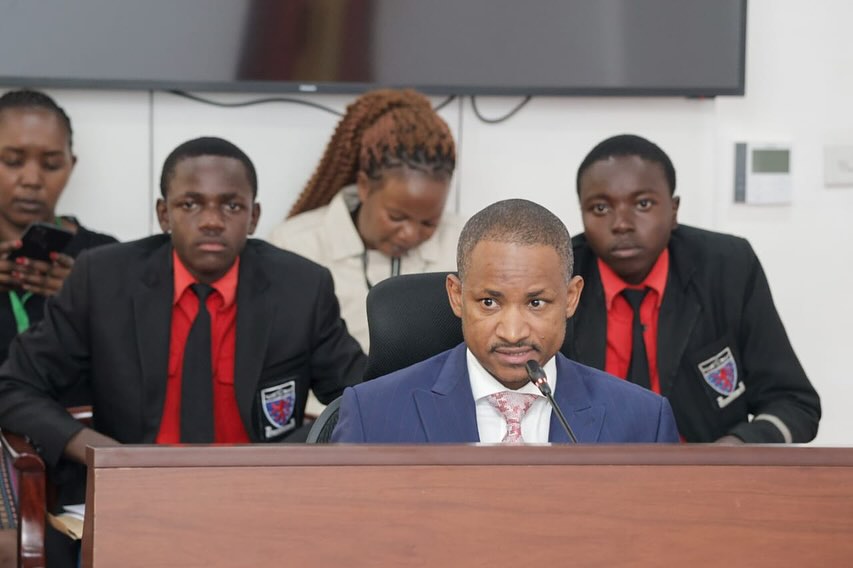
Babu Owino seeks law to clear reformed offenders’ criminal records in draft bill » Capital News
NAIROBI, Kenya Aug 14 – Embakasi East Member of Parliamebt Babu Owino has tabled a legislative proposal seeking to allow certain criminal records to be expunged once offenders have served their sentences, a move he says will give reformed Kenyans a fair shot at employment and reintegration into society.
Appearing before the National Assembly’s Justice and Legal Affairs Committee (JLAC), Babu argued that many Kenyans particularly youth remain locked out of jobs because of police clearance certificates bearing decades-old convictions for minor offences.
Defending the proposals of the criminal procedure code (amendment) bill, 2024 before the George Murugara (Tharaka) led committee,Owino explained that the legal provisions will address the lacuna in the law relating to expunging of criminal records in the interest of justice where police clearance certificates are concerned.
“Once a person has served their sentence or paid their fine, they should be clean. They have already paid their debt to society. We must save such Kenyans from being permanently judged for past mistakes,” the lawmaker stated.
The proposed bill excludes sexual offences such as rape, defilement, sodomy and incest, as well as capital offences like murder, treason and robbery with violence. Babu said terrorism and certain serious financial crimes could also be excluded, depending on committee recommendations.
Owino said the draft bill proposal was hinged on the 2020 High Court decision in Ibrahim Ngohi v Directorate of Criminal Investigations, where a man convicted of creating disturbance 20 years earlier was denied a job due to his criminal record.
The court found no clear legal framework for expunging criminal records in the country and referred the matter to Parliament for action.
The committee chair questioned how the legislative proposal would align with other planned reforms, including the possible abolition of the death penalty and reclassification of capital offences.
“We will see the process of reforming the law so that first and foremost we do away with the death sentence which means we will not have any counter-offences after that and we will possibly graduate offences that were counter depending on gravity, degree of involvement in each of them,”
“How will that compare with what you are proposing here because if the exemption is not so clear we will have people entitled to expungement not benefiting from it because the offence they were charged with is capital but they served only 5 years,”Murugara queried.
The committee chair also questioned whether terrorism, corruption and money laundering should ever qualify for expungement.
“Where do we place terrorism in modern day society anti-terrorism is one of those very grievous offences we need to know whether it can be exempted.Let’s also look at financial crimes like money laundering and other related offences and such other crimes which on the face of it possibly nobody would want to forgive you for it,”Murugara expressed.
Ruaraka MP T.J Kajwang raised caution over blanket clearance, warning against releasing individuals convicted of violent offences without proof of rehabilitation.
“We cannot presume rehabilitation without evidence. Why not require a period two or three years after sentencing to prove genuine reform before granting amnesty?” Kajwang stated.
Ol Jorok MP Michael Muchira supported the bill on the underlying principle of double jeorpady for offenders who have already served their sentences and deemed to have fully reformed.
“We should not subject these people to double jeopardy where you serve a sentence then you continue to be condemned even when you are outside. So persons should be given a second chance so that they are able to look for jobs,” the legislator stated.
The Embakasi East MP said he was open to refining the exclusions, possibly adding a monitoring period for those released, and granting automatic clearance for juvenile offenders upon reaching adulthood.
“If you carry this tag of being a criminal forever, you risk pushing people back into crime. Prison could start looking like the only place they belong,” Owino warned.
“This is especially the case where the conviction was as a result of a misdemeanor or minor offence. Let’s give our youth a second chance by considering enactment of this law,” he added.